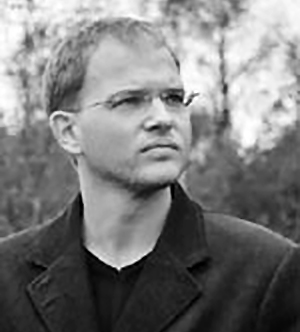 “A time must come when there will be a science of the future, just like there is a science of the past – and when by virtue of this science the noblest humans calculate for the future as well as for themselves,” writes German philosopher and theologist Johann Gottfried Herder in his 1797 essay On Knowing and Not-Knowing the Future.
“A time must come when there will be a science of the future, just like there is a science of the past – and when by virtue of this science the noblest humans calculate for the future as well as for themselves,” writes German philosopher and theologist Johann Gottfried Herder in his 1797 essay On Knowing and Not-Knowing the Future.
In my talk, I will discuss Herder’s and other concepts of futurity that were advanced around the year 1800. Thereby, an epistemological TransFormation par excellence will be observed – the one to bridge knowledge about the future with a general futurization of knowledge.
In contrast to this historical approach, the Master Class will discuss problems of contemporary future knowledge. This kind of knowledge characteristically embodies the prospect of uncertainties: Climatologists, demographers, and economists today predict risks that appear to be outside control. Consequently, the need for certainty and security increases: The planning of the future is mainly held liable to ‘sustain’ the present – in ecological, economical, and cultural terms. However, the challenge how to cope with the uncertainty of every prognostic has to be addressed: questions such as if, in the light of ‘scenario technique’, prognostics should be performed by a data processor, or, if they are considered as unsettling cognitive abilities.
I suggest to bridge an epistemology of knowledge about the future with the rhetorical analysis of future discourses and speech acts. By asking about the future’s recognizability as well as its presentability, crucial (although often neglected) aspects of knowledge come to the fore:
- Future knowledge is highly constructed knowledge. Therefore the focus lies on the respective cultural techniques (from the interpretation of dreams and oracles to scenario techniques) as well as poetics and rhetorics (of prediction, forefeeling, desiring, threatening, etc.).
- Statements about the future must be authorized knowledge and therefore depend on the respective subject positions (e.g. fortune teller, prophets, demographers).
- A frame of meaning as well as legitimacy is provided to statements about the future by emploting them into narratives (e.g. of progress or decay).
- Future knowledge demonstrates the role of fictions within science: on the one hand, as a testing ground for hypotheses, scenarios, and thought experiments, on the other hand, as regulatory fictions that constitute and legitimate prospective research practice (e.g. by means of investing in fields such as renewable energies or by establishing new legal frameworks, e.g. in the field of embryonic research).
- Future knowledge calls into question the boundaries of knowledge from the inside and from the outside: It highlights what is not yet but might be known, and, in the mode of the phantasmatical, it transcends fixed and ensured knowledge.
- Since prognostics not so much aims at the future present, but rather at the respectively present future, forms of future knowledge uncover the role of knowledge orders for societal self-descriptions.
- Since future knowledge is likely to initiate political measures, prognostics today is an exemplary field of linkages between knowledge and politics.
Tags: Future, Future knowledge, Futurity, IASH, TransFormations, Winter School

